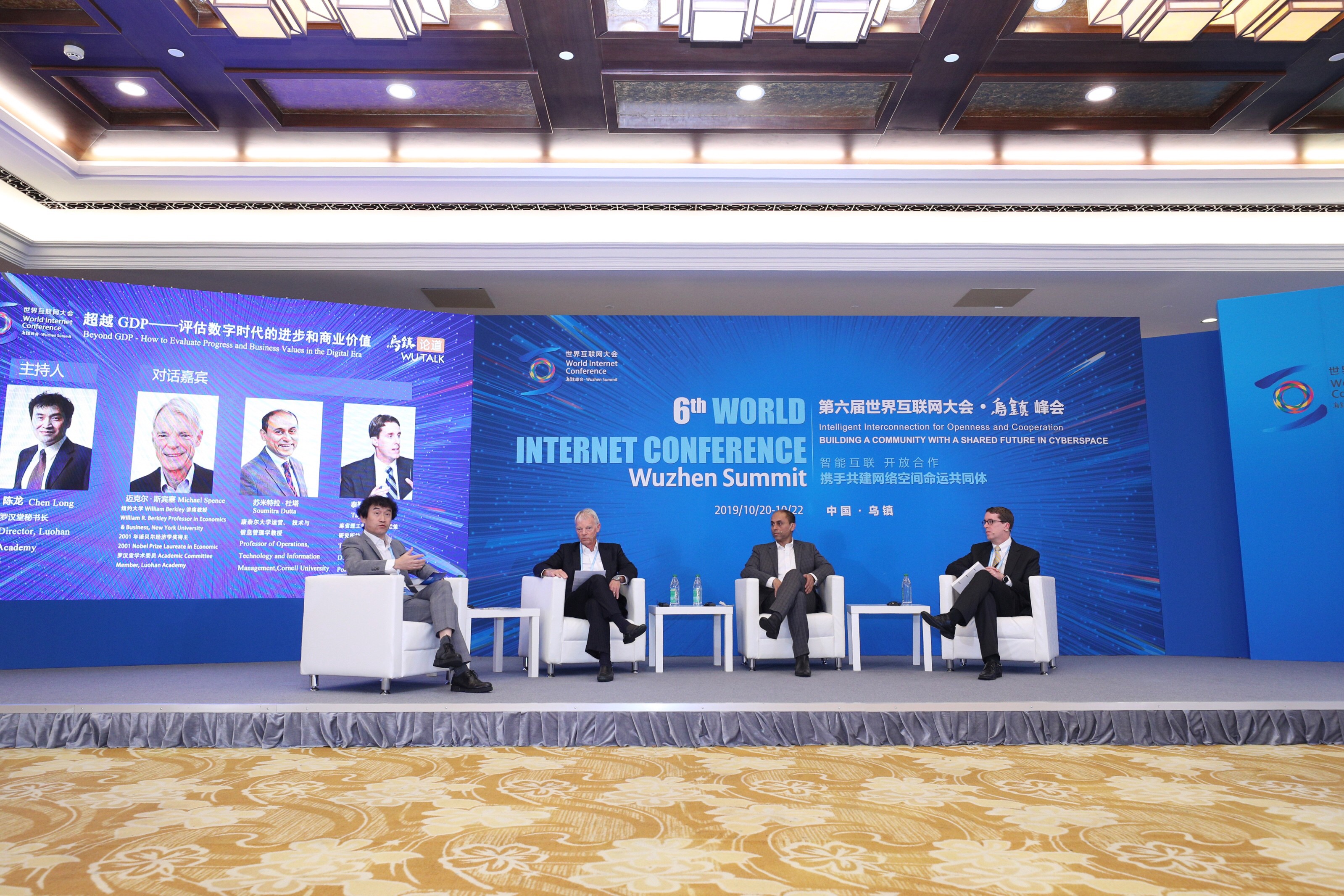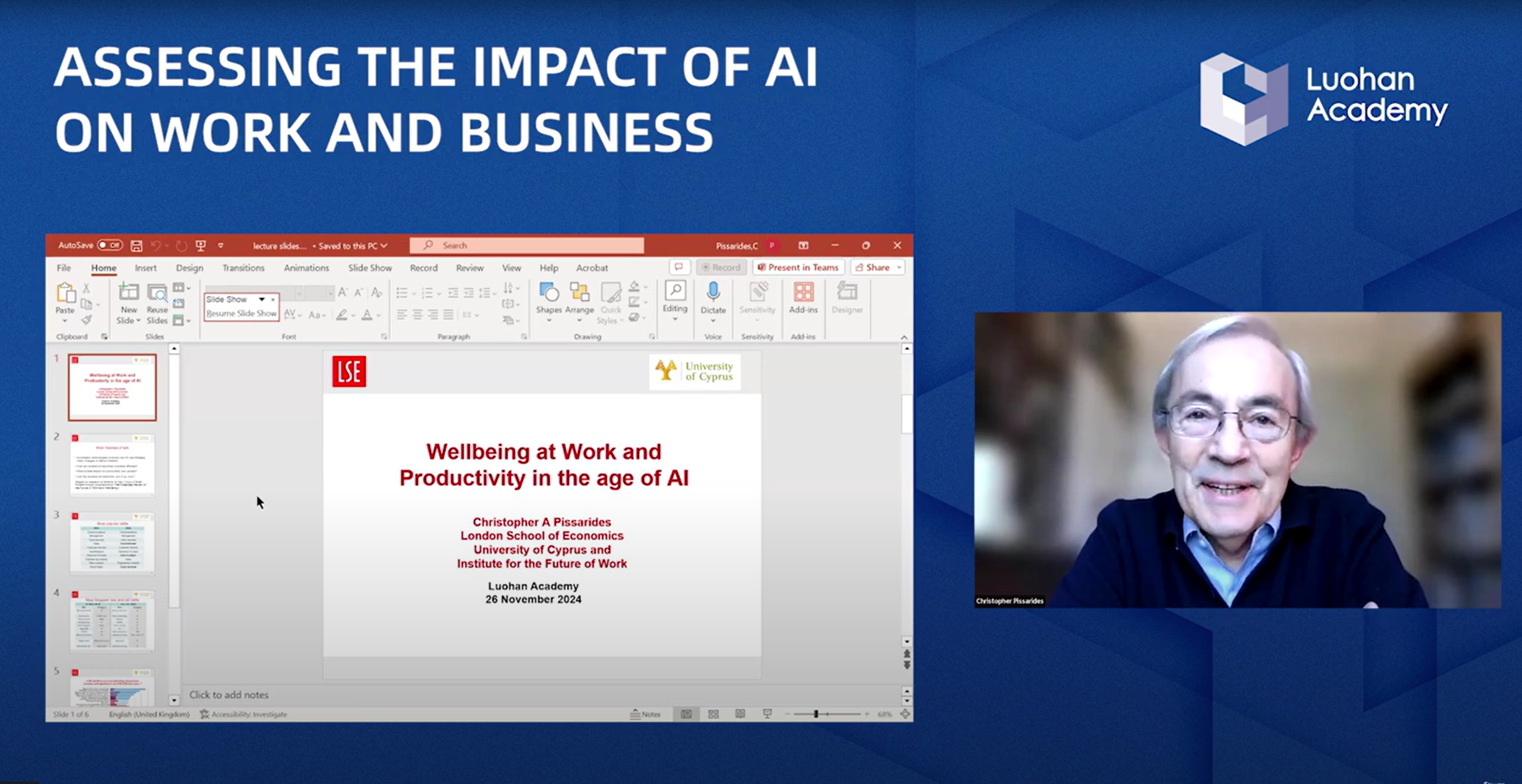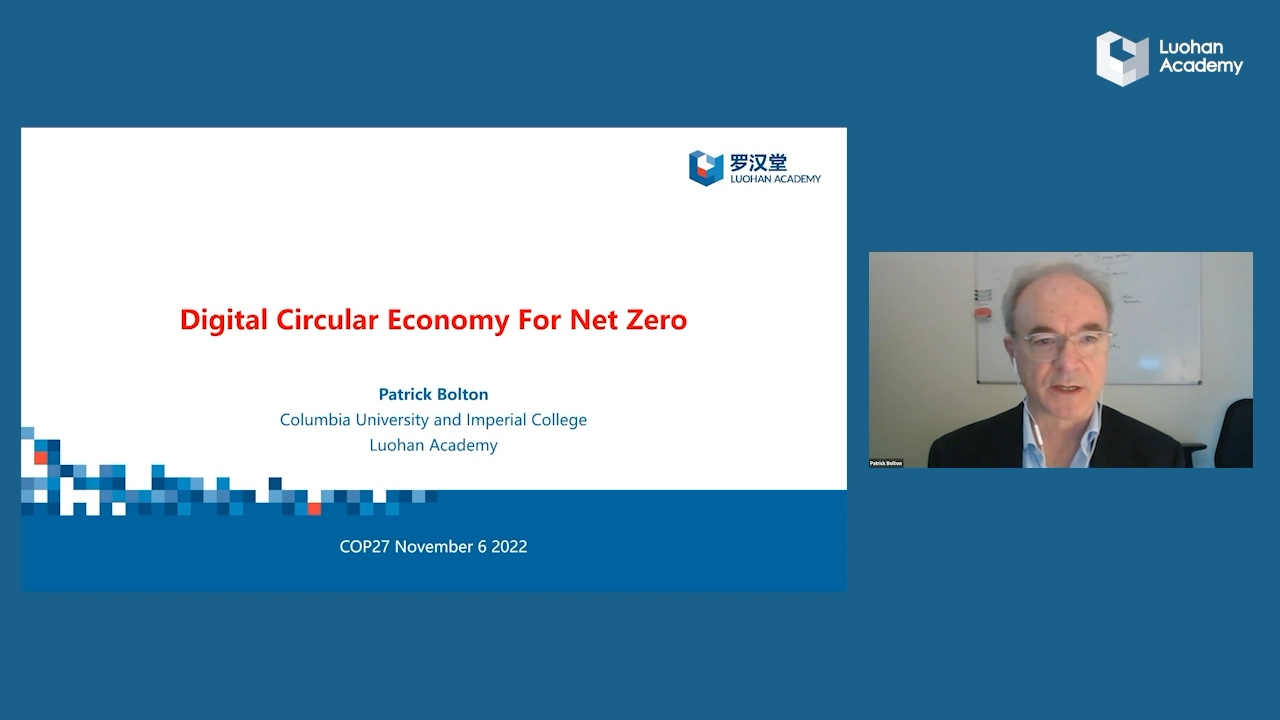As global connectivity increases, it is imperative that every stakeholder, whether boardroom CEOs, policymakers, or technologists, fully understand the impact of digital technology on economic growth and society. This question led Luohan Academy to invite three world-renown economists and tech scholars to this year's World Internet Conference in Wuzhen to discuss "Beyond GDP: How to Evaluate Progress and Business Values in the Digital Age." The three scholars included Nobel Laureate and NYU professor Dr. Michael Spence, technology policy director of MIT's Internet Policy Research Initiative, Dr. Taylor Reynolds, and Professor of Management at the SC Johnson College of Business, Cornell University, Soumitra Dutta, with Luohan Academy Director, Long Chen acting as moderator.

During the panel, questions ranged from the expert's efforts to find the true value of connectivity, the right government policies, and new corporate models of governance. However, these four scholars also set out to find the answer to a question that has baffled economists for decades. How to better complement Gross Domestic Product (GDP) as a measure of progress that better suits the digital age for which we live? Dr. Chen summed it up, stating, "GDP measures goods and services but not a good life as a whole." To remedy our over-reliance on GDP, Dr. Chen also recommended that any future measure of progress must include three principles: Well-being, Societal Benefit, and Measurability.
Well-Being
Behind every technological development are hidden values that benefit our well-being, which is not included in GDP. Whether it is a free online service available through our cellphone or AI-driven recommendations, in many ways, digital technology has enabled a pursuit for a better life.
Societal Benefit
The value of digital technology is not reflected in GDP; however, it has brought universal value to the whole of society. For example, everyone with a smartphone in China has opportunities, and modern healthcare systems can provide services in the most remote areas. Inclusive technology brings not only measurable benefits to individuals, but also promotes overall social equity as a whole.
Measurability
Unless we can measure the benefits and tradeoffs of technology accurately, it will be challenging to leverage technology properly. With the digital era, there has been an explosion of data. Metrics, once thought unimaginable to measure, are now measurable. We now have copious amounts of quantitative data to analyze to find new indicators of progress.

The proposition of these three pillars is not that GDP is irrelevant but that it does not capture some critical dimensions of economic and social progress such as equality and sustainability. Now digital technologies have a significant and growing impact on pretty much every aspect of well-being, including material well-being (GDP). However, the benefits tend not to show up in GDP because they are achieved to put it crudely by increases in services, many of which are free. Such as the search engine you are using on the supercomputer in your pocket. Essentially, Dr. Chen is arguing that Digital Technology should not be feared but better understood, its benefits documented, and leveraged to measure well-being and progress for all humankind









